Review for Akira Kurosawa's Dreams
I love films about dreams. About ‘real’ dreams; not running in slow motion through a foggy graveyard stuff but the weird, off-kilter, almost real stuff like Lynch’s ‘Eraserhead’ or Tarkovsky’s ‘Stalker’. Legendary Japanese Director Akira Kurosawa’s 1990 film . ‘Dreams’, is one of the best yet – not as relentlessly dark as Lynch and Tarkovsky, both thematically and literally, but somehow evoking the atmosphere and logic of the alternative reality of everyday dreaming. Whether apocalyptic and dark, or optimistic and warm, he uses eight vignettes of varying length and complexity to create a complete film which is wonderful from top to tail.
Akira Kurosawa is one of a handful of director’s credited with moving the language of cinema forward, particularly with his action-packed Samurai films which re-invented the way such films could be shot and edited to draw audiences into them in a very personal way. One example was his use of filming a group of battling soldiers from behind, giving the point of view of one of the warriors – something pretty much unheard of until then. But there was much more to his films than merely that. He was a master of narrative and construction, using editing to carve out the film he had in mind from the source materials, meticulously staged, lit and shot. Indeed, he was so admired by other directors, including Spielberg, Bertolucci, Coppola and Scorsese, that when, at almost 80, he was struggling to raise finance for another film (he was not a man to shoot on a budget), Spielberg and Scorsese came to his rescue, helping raise finance for ‘Dreams’.
It was to be an incredibly personal film for Kurosawa; his first film penned entirely himself and based upon notes and recollections of his own dreams. As a result, it covers a gamut of emotions, scenarios and possibilities – including dreams about childhood (in my favourite extract, when a young boy happens upon a foxes wedding and has to pay the diabolical consequences), and a chat to Van Gogh about his art, very like vivid dreams I have also experienced about talking with my idols about their art; maybe a common enough dream to have.
There are nightmares here too – ghosts and demons are prevalent, as is impending nuclear apocalypse. In fact, the dream showing a nuclear disaster with its red smoke driving humanity to the coasts and into the sea may be the best and most accurate capturing of such a dream on celluloid to date. It certainly has a ring of authenticity about it, with Kurosawa going beyond just capturing and re-telling the narrative but somehow managing to capture the very atmosphere of the dream too. It’s incredibly impressive stuff.
It’s also clear that the budget for the film must have been sizable. Filmed in 1989 / 1990, it was just a year or two behind the CGI revolution; the crowds you see in the film are real enough and the choreography and placement of them often breath-taking. Indeed, it’s a film where you constantly wonder at how it could be done – answered fully in the copious extra features, which I’ll get to.
The image quality on this 4K restoration is stunning. It’s a beautiful film by any standard, but to have it in such flawless, high definition makes it an absolute joy to watch. It’s a film you’ll want to play again and again just to see its almost painterly brilliance adorn your living room wall. With sumptuous colouring and beautiful composition, I am unsure of ever having seen a better-looking transfer, preserving the subtle grain of the original film stock whilst presenting such a vibrant and detailed image. It’s presented in its original theatrical aspect ratio of 1.85:1 widescreen.
The DTS-HD Master Audio 2.0 track is excellent too, allowing a full appreciation of its dialogue, score and audio effects, perfectly enhancing the on-screen action.
As a Criterion release, I’ve come to expect a veritable film-school syllabus worth of contextual extras and this release delivers in spades. There’s an excellent audio commentary by film scholar, Stephen Price, who spends time analysing the potential meaning of each vignette – not an approach ever taken by Kurosawa himself who didn’t like too much theoretical analysis in interview questions.
There's also a brand new Interview with now quite elderly Production Manager Teruyo Nogami who reflects on her work with Kurosawa with gratitude, convinced that such work has made hers a life worth living. She is clearly extremely proud of the work she has done. It’s interesting that he work would often focus on the screenplays in particular as well as assisting the driven Kurosawa during his periods of intensely focused editing.
Also included is an Interview with Assistant Director Takashi Koizumi who discusses five collaborations with Kurosawa, and what was learned along the way, working alongside the 'master'.
Most significantly, there’s a mammoth 150 minute archival ‘making of’ documentary, shot during production which has tons of shots of and comments from Kurosawa throughout the filming. It’s broken into the eight vignettes and, whilst a little long for the casual viewer, is a goldmine for anyone studying Kurosawa’s work.
Finally, other than the pre-requisite inclusion of a trailer, the disc features an hour long 2011 Documentary, ‘Kurosawa's Way’ , which features 11 directors (including Scorsese and Bertolucci) who reflect on the influence of the great man on their own work. It’s a really great watch and a fun way to get a second-hand appreciation of the more subtle nuances of his work.
I believe the disc ships with a reversible sleeve containing a booklet with contextual articles and interviews – always a nice finishing touch from Criterion.
‘Dreams’ is a film for everyone. It’s utterly bewitching and a film that you’ll want to return to again and again. It’s certainly not as singular in focus as much of Kurosawa’s previous work but it is a masterpiece in its own right. This edition gives it the transfer and treatment it deserves. Highly recommended.
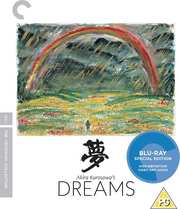


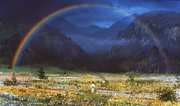



































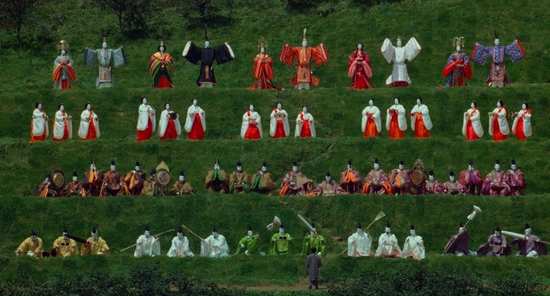
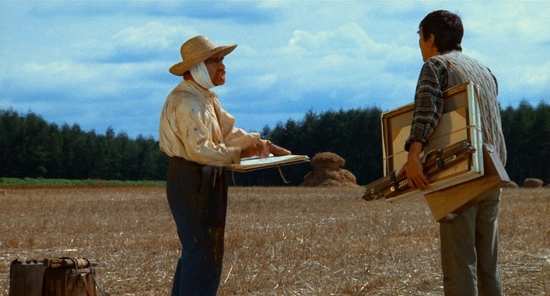

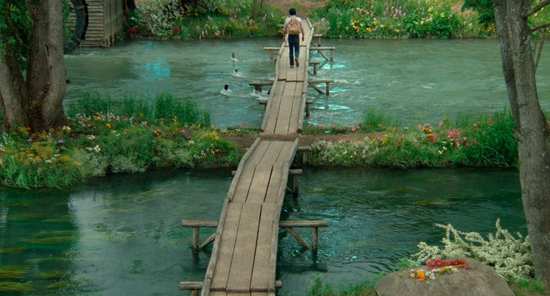

Your Opinions and Comments
Be the first to post a comment!